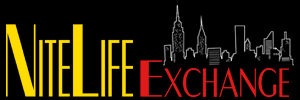
He’s recently been most associated with his monthly Ricky Ritzel’s Broadway cabaret show (which received the 2016, 2017 and 2018 MAC Award for Outstanding Recurring Series), but pianist-entertainer Ricky Ritzel has been on the forefront of the New York night life scene for almost 40 years. Writer, reviewer, author and clipmeister/historian Will Friedwald said of Ritzel in the Wall Street Journal, “He is the embodiment of the tradition.” Ritzel has also been named one of the “50 Most Influential People in Cabaret” by our own NiteLife Exchange and Outstanding Person in the Arts in New Jersey by State Senator, Brian Stack. And that’s only the beginning of his many accolades. His show, Ricky Ritzel Sings Elaine Stritch garnered a plethora of awards, as have many of his other shows. To date, Ritzel has 20 MACs total gracing his bookshelves.
Ritzel has performed nationally and internationally as a solo performer and as an accompanist/music director for the likes of Vivian Blaine, Ruth Warrick, Arthur Prysock, Varla Jean Merman, Julie Wilson, Nanette Fabray and more. He was musical director for the Sally Rand Tribute at The Town Hall and with Chicago jazz vocalist, Spider Saloff, created several award-winning revues He’s also half of the “Lounge does Top 40” duo, The Loungeoleers, which has issued five CDs on the Emenar label. Among a vast number of other credits, Ritzel has served as the first Artistic Director for cabaret at the premiere season of the Gettysburg Festival, was MAC president from 2006- 2009 and entered the Guinness Book of World Records by being featured in the World’s Longest Variety Show at the Metropolitan Room, New York City.
NiteLife Exchange (NLE) asks Ricky Ritzel (RR) Six Questions.
NLE: You originally set out to be an actor; why/how did you switch from your focus on this career into the world of cabaret?
RR: I’ve played piano since I was six. My teacher was a neighbor who lived a block away, but he was also a professor at Duquesne University. Boy, was I lucky! I knew I couldn’t be a concert pianist cause they don’t talk. I always wanted to study theatre, so when it came for college, that was my major. When I moved to New York, playing the piano was my “day job.” I could audition during the day and play piano at night. Eventually, I found myself accompanying singers in cabarets and the rest is history!
NLE: In your cabaret beginnings, who were your mentors––the greatest infuencers of your career?
RR: When I moved here, I immediately met Buddy Barnes, who has been a huge influence. Chris Barrett took me under his wing and helped me. I was lucky enough to know and hear great cabaret performers and pianists like Jimmy Lyon, Buddy Weed, Berri Blair and Charles DeForest. I became good friends with Jerry Scott, Marie Blake and Steve Ross. You can learn a whole lot from people like that.
NLE: The cabaret landscape has changed drastically over the years. What were your favorite clubs of “the old days?”
RR: When I got here, things were just starting to change. Upstairs at the Downstairs and Brothers & Sisters were gone but The Duplex was in full swing as was Freddie’s and Jan Wallman’s on Cornelia St. I was a customer on opening night at Don’t Tell Mama. That was wild. Where Swing 46 is now located had been five different clubs since I arrived.
NLE: You have an encyclopedic knowledge of American musical theater and the Great American Songbook and its proponents. How did you become interested in amassing such knowledge?
RR: My parents were older; they were in their 20s during WWII. My whole family loved music and shows, so that was my influence. Combine that with a natural curiosity about the history of things and there you have it. I still actually buy books!
NLE: What have we gained and what have we lost in terms of musical theater and cabaret over the years?
RR: We lament the loss of things like clubs and early showtimes replacing late ones—but I think, owing to social media, it’s easier to get an audience. The prices, people say, are a problem, but they’ve always been prohibitive. Even when covers were $5, it’s $5 you didn’t have. I think cabaret is slowly getting back to its roots of being edgy and confrontational, in a way. We’re seeing less of “…and here’s a song I like’,” which I think is a good thing.
NLE: When the pandemic is over, how do you see the cultural/cabaret scene emerging? Will you return with Ricky Ritzel’s Broadway as usual?
RR: It’ll be slow and, hopefully, safe. But once it starts up, it’ll be rolling full speed. I can’t wait to present the March 2020 show anytime in 2021, cross your fingers!
Here’s a sample of the artistry of Ricky Ritzel:











Leave a Reply